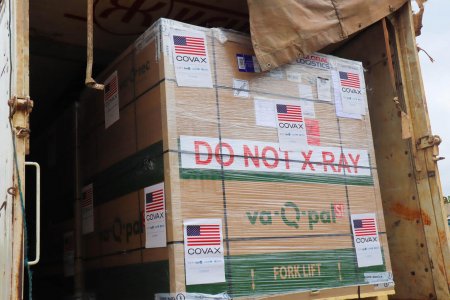
COVID-19 vaccine shipments to Africa must rise by over seven times from around 20 million per month to 150 million each month on average if the continent is to fully vaccinate 70% of its people by September 2022.
The 70% target was agreed at the global COVID-19 summit hosted by the United States of America on the margins of the United Nations General Assembly this week.
At the summit, the United States pledged to share 500 million more COVID-19 vaccines to low-income countries over the next year, bringing its total pledges to more than 1.1 billion doses.
“The global COVID-19 summit was a dose of hope for Africa and we commend pledges to share more vaccines, save lives and build back better. It is the kind of international solidarity that will help to end the pandemic. This is about life and death for potentially millions of Africans so there is no time to waste in getting these shipments moving,” said Dr Matshidiso Moeti, World Health Organization (WHO) Regional Director for Africa.
The COVAX Facility, the global platform to ensure equitable access to COVID-19 vaccines, has been forced to slash planned deliveries to Africa by 25% this year, due to global supply shortages and export bans. COVAX shipments are still coming into African countries – with 4 million doses received in the past week. However, only a third of the vaccines that wealthy countries pledged to share with Africa by the end of 2021 have been received.
“Actions speak far louder than words and African countries need clear delivery dates so they can plan properly. We also need strong structures set up to ensure that all promises made are promises kept,” said Dr Moeti.
WHO has assisted 18 African countries in conducting intra-action reviews, which analyse all aspects of their vaccination campaigns and offer recommendations. The reviews have shown that vaccine supply security and uncertainty around deliveries have been a major impediment for many African countries. Also, the longer the delay in rolling out the vaccines, the greater the risk of additional challenges emerging such as variants, hesitancy, operational gaps or other threats.
Source: WHO







